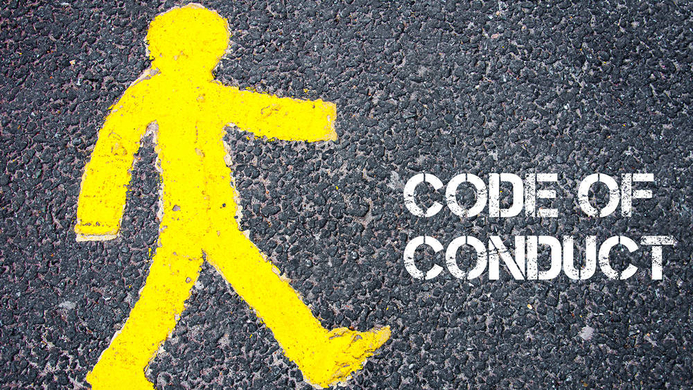A code of conduct is an official statement that formalizes a set of rules, principles or business practices that an organization pledges to abide by. Codes are not imposed by laws or regulations, and are established unilaterally by the organization that wants to use them. From environmental protection to the gaming industry, from the arms trade to advertising, codes have proliferated in all areas of economic life over recent decades. The authors of these codes are equally diverse, ranging from international institutions, NGOs, nation states and, of course, corporations. Since the codes are not legally binding in theory, how have they managed to assume such a prominent place in the life of organizations and consumers?
Why codes of conduct are successful
For consumers, the codes of conduct introduced by commercial companies formalize a promise of reliability and quality. For companies, they are strategic tools that can assert their competence. The standards contained in the codes also provide guidelines that help firms improve their productivity. Accordingly, codes of conduct are intended to establish a level playing field for businesses, employees and consumers, thereby promoting trade, exchange and service or product quality.
|
Directive 2005/29/EC defines a code of conduct as: "An agreement or set of rules not imposed by law, regulation or administrative provision of a Member State which defines the behavior of traders who undertake to be bound by the code in relation to one or more particular commercial practices or business sectors." |
A new legal tool
Codes of conduct are still of little interest to the legal profession, which generally prefers conventional legal instruments; however, the codes do have a legal impact. For example, although they do not exist as a separate legal entity, codes can serve as a basis for proceedings for false advertising. Nike was sued in 1998 by a US citizen, Marc Kasky, for disseminating false information claiming that its subcontractors complied with the company’s code of ethics. The case was settled in 2003, with Nike agreeing to adopt a more transparent approach to its workers and subcontractors — and making a payment of $1.5 million to the Fair Labor Association (a US organization whose mission is to assess work conditions and improve practices among subcontractors).
Codes of conduct are intended to establish a level playing field for businesses, employees and consumers, thereby promoting trade, exchange and service or product quality.
Codes of conduct at the service of European consumers
Since the 1970s, the European Union in general and the European Commission in particular have produced - or urged organizations to produce - codes of conduct, as well as encouraging stakeholders (companies, professional organizations, and so on) to adopt them. This enables the EU to bypass the delays and obstacles that are part of its legislative process.
Directive 2005/29/EC of 11 May 2005 on unfair commercial practices vis-à-vis consumers has helped take consumer protection a step further. The directive means that, if there is a dispute, a judge can take a code of conduct into account when assessing business practices. As a result, it is now easier for consumers to seek redress to expose a trader that is allegedly contravening the claims in its code of conduct. Although this possibility for filing claims is not yet widely known, the first lawsuits (filed in the Netherlands) should help to publicize the practice.
Will codes become more binding?
Companies have realized that they can no longer simply make declarations with impunity if they do not then translate them into action. To avoid judicial remedy, it is possible for firms to draw up codes of ethics that are limited to somewhat vague and general principles. But there is nothing to stop member states from adopting provisions that are more binding than the EU directive. Similarly, campaign groups are free to let the general public know about the mismatch between words and facts. The suit filed by Peuples Solidaires, SHERPA and Indecosa-CGT on Samsung labor practices was a French first in this respect. Lodged in February 2013, the complaint accused Samsung of deceiving consumers. The company claimed that it respected the rights of workers in its factories — and used this pledge as a key element in its communications — even though investigations by China Labour Watch proved the opposite to be true.
Although no further action was taken, the case brought Samsung publicity it could have done without. The worst sanctions come from the market, and companies are often more afraid of the risk to their reputation than any monetary fines or damages they might have to pay to injured consumers. Firms that do not comply with their own codes of conduct can see sales drop, share prices fall and links with stakeholders thrown into question.









